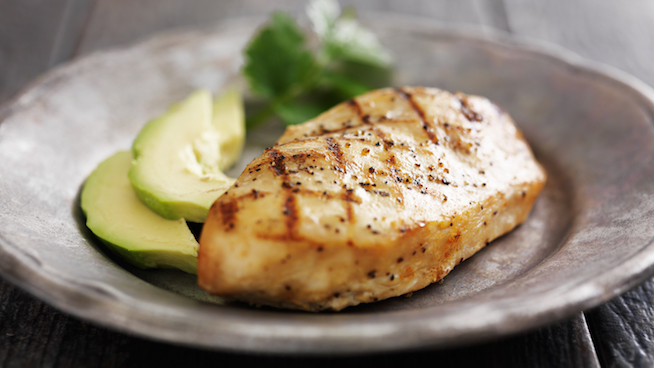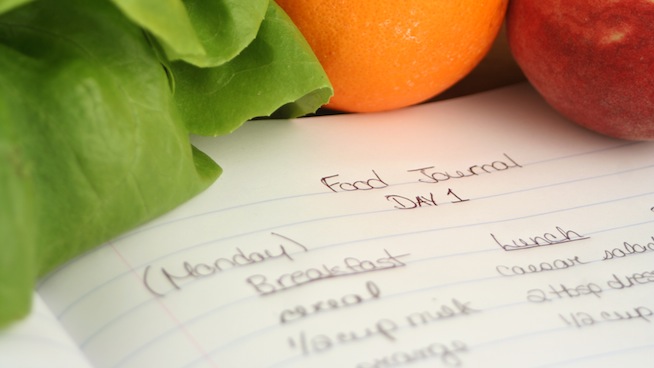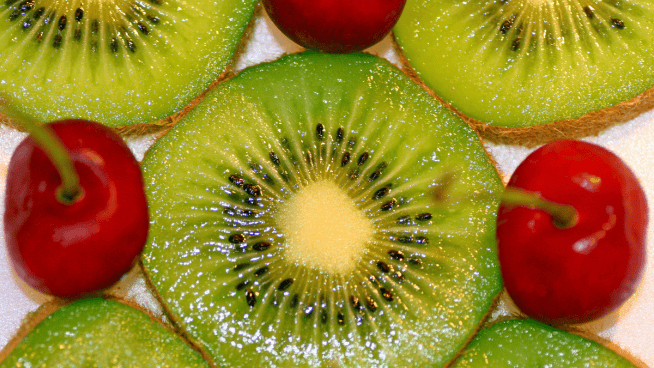4 Reasons Why Athletes Should Keep a Food Journal
![]()
In our ongoing battle to properly fuel ourselves and conquer poor eating habits, an invaluable ally can be a food journal.
Here are four reasons why you should start journaling your meals.
1. It shows that what you think and what you eat aren’t always the same

The first thing a food journal will give you (besides, you know, better eating habits, increased energy levels, and better performance on the field) is increased self-awareness. Most of us eat according to our cravings, convenience and even mood.
When you write down your meals, suddenly you clearly see what you are actually putting into your mouth on a daily basis. No longer can you make your one good meal choice from a few days ago justification for the poor food choices you are making today.
This form of denial that obscures poor dietary decisions is what keeps us from eating well. After all—can you accurately remember and detail what you ate yesterday? The day before? Or even last week? Keeping a food diary will give you the self-awareness you need to make the changes you want.
Remember: what gets measured gets changed.
2. It reveals gaps in your nutrition

Most athletes don’t drink nearly enough water. And, as research has shown, the nutrition of most collegiate athletes falls short of meeting their daily recommended targets for macronutrients.
The power of the information you get from writing down your meals helps you close the performance gap between what you are eating and what you should be eating by shining a light on where you are coming up short. Invariably, you will catch some glaring weaknesses in your dietary intake that you can correct immediately. Drinking more water, for instance.
I’ve lost count of the number of times I’ve asked athletes if they are fueling themselves properly—to which I am invariably told, “Oh yeah, I’m getting lots of carbs before my workouts, protein after, and drinking more than enough water.” When they are assigned to write down their meals and hydration levels for even just a couple days, their confident projections turn out to have been miscalculated.
Journaling your food helps you ascertain whether you are meeting your macro targets each day and helps you stay up to date on supplementation and hydration.
3. It’s a powerful tool for you and your nutrition specialist

The best couple of hundred dollars I ever spent was paid to a sports dietitian to put together a comprehensive meal plan based on what I typically eat. But before she could give me this highly actionable plan, I had to provide her with a written record of what I was eating, both in the kitchen and before and after my workouts.
If you have a sports nutritionist at your school or connected to your team, sit down with him or her and go over your food journal. The nutritionist can help you navigate the labyrinth of what’s healthy and what isn’t, while giving you clear instructions on how to move forward.
4. It provides critical intel on your performance

Ever find yourself sagging in energy toward the end of the week—or “crashing” during your afternoon swim practices?
These scenarios can often be traced to diet decisions. This goes back to increasing self-awareness. Your crashes and drops in energy can be blamed on something else (stress, sleep deprivation); but more often than not, poor dietary choices are catching up with you—not enough carbs, too many carbs, not enough veggies, not staying on top of your water, and so on.
Your food journal will allow you to draw a direct line between your nutrition and your performance, helping you unlock more consistent practices and better performance in competition.
It’s impossible to out-train a bad diet, and really, why would you want to?

The Next Step
Over the next few days and weeks, write down your meals and snacks, either in a dedicated food journal or in the pages of your workout log book. Fight the urge to gloss over your less-than-optimal food choices and be honest about how you are fueling yourself.
Think of your food journal as a powerful supplement to your training, one that will help you eat better, experience increased energy levels, gain self-awareness, and most importantly, perform like a champ.
[cf]skyword_tracking_tag[/cf]RECOMMENDED FOR YOU
MOST POPULAR
4 Reasons Why Athletes Should Keep a Food Journal
![]()
In our ongoing battle to properly fuel ourselves and conquer poor eating habits, an invaluable ally can be a food journal.
Here are four reasons why you should start journaling your meals.
1. It shows that what you think and what you eat aren’t always the same

The first thing a food journal will give you (besides, you know, better eating habits, increased energy levels, and better performance on the field) is increased self-awareness. Most of us eat according to our cravings, convenience and even mood.
When you write down your meals, suddenly you clearly see what you are actually putting into your mouth on a daily basis. No longer can you make your one good meal choice from a few days ago justification for the poor food choices you are making today.
This form of denial that obscures poor dietary decisions is what keeps us from eating well. After all—can you accurately remember and detail what you ate yesterday? The day before? Or even last week? Keeping a food diary will give you the self-awareness you need to make the changes you want.
Remember: what gets measured gets changed.
2. It reveals gaps in your nutrition

Most athletes don’t drink nearly enough water. And, as research has shown, the nutrition of most collegiate athletes falls short of meeting their daily recommended targets for macronutrients.
The power of the information you get from writing down your meals helps you close the performance gap between what you are eating and what you should be eating by shining a light on where you are coming up short. Invariably, you will catch some glaring weaknesses in your dietary intake that you can correct immediately. Drinking more water, for instance.
I’ve lost count of the number of times I’ve asked athletes if they are fueling themselves properly—to which I am invariably told, “Oh yeah, I’m getting lots of carbs before my workouts, protein after, and drinking more than enough water.” When they are assigned to write down their meals and hydration levels for even just a couple days, their confident projections turn out to have been miscalculated.
Journaling your food helps you ascertain whether you are meeting your macro targets each day and helps you stay up to date on supplementation and hydration.
3. It’s a powerful tool for you and your nutrition specialist

The best couple of hundred dollars I ever spent was paid to a sports dietitian to put together a comprehensive meal plan based on what I typically eat. But before she could give me this highly actionable plan, I had to provide her with a written record of what I was eating, both in the kitchen and before and after my workouts.
If you have a sports nutritionist at your school or connected to your team, sit down with him or her and go over your food journal. The nutritionist can help you navigate the labyrinth of what’s healthy and what isn’t, while giving you clear instructions on how to move forward.
4. It provides critical intel on your performance

Ever find yourself sagging in energy toward the end of the week—or “crashing” during your afternoon swim practices?
These scenarios can often be traced to diet decisions. This goes back to increasing self-awareness. Your crashes and drops in energy can be blamed on something else (stress, sleep deprivation); but more often than not, poor dietary choices are catching up with you—not enough carbs, too many carbs, not enough veggies, not staying on top of your water, and so on.
Your food journal will allow you to draw a direct line between your nutrition and your performance, helping you unlock more consistent practices and better performance in competition.
It’s impossible to out-train a bad diet, and really, why would you want to?

The Next Step
Over the next few days and weeks, write down your meals and snacks, either in a dedicated food journal or in the pages of your workout log book. Fight the urge to gloss over your less-than-optimal food choices and be honest about how you are fueling yourself.
Think of your food journal as a powerful supplement to your training, one that will help you eat better, experience increased energy levels, gain self-awareness, and most importantly, perform like a champ.
[cf]skyword_tracking_tag[/cf]










